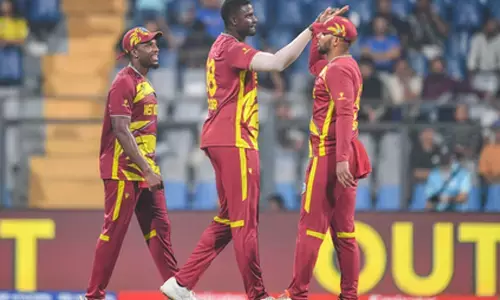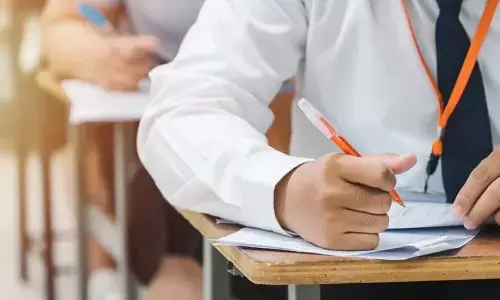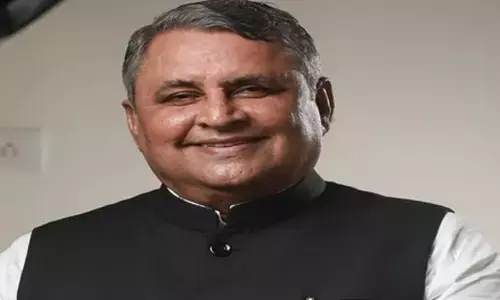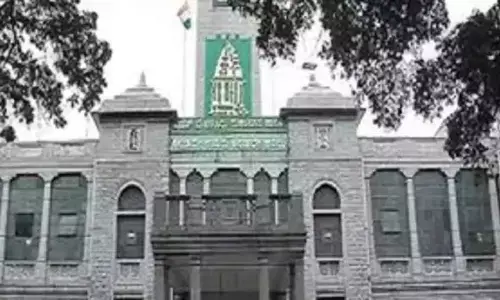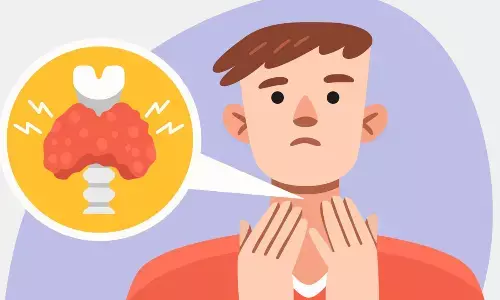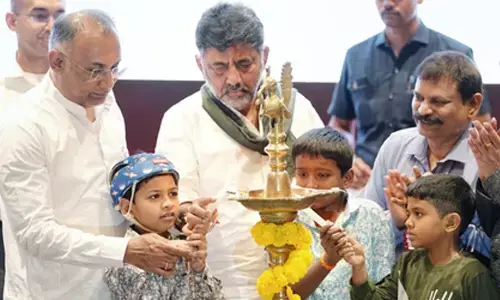Murders passed off as Deaths
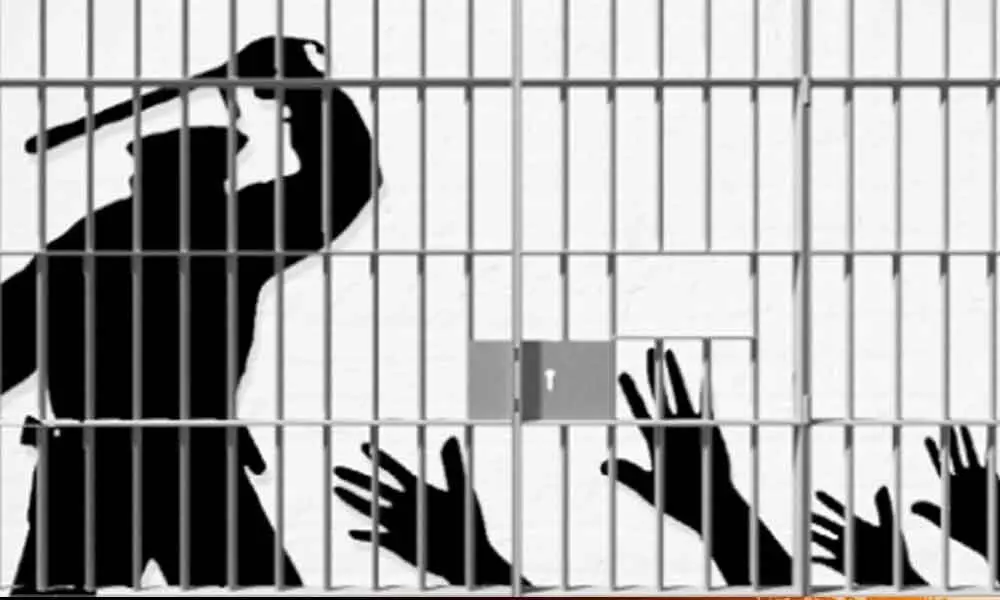
Representational Image
Not courts, but police stations and prison rulers punish
During 17 years till 2018, 1727 persons died in custodial violence in India. Just they were killed. According to data released by National Crime Records Bureau NCRB, 26 policemen were convicted. Some critics described only 26 are convicted. But from a different angle it is surprising that 26 police personnel were proved guilty and jailed. In UP, MP, Chhattisgarh and Odisha, policemen were convicted whereas no police officer was convicted in other States.
It kindles hope that there is still rule of law in our country, in spite of widespread variations in various offices of law enforcement. In 2018 only 4.3 per cent of 70 deaths were attributed to injuries during custody due to physical torture by police.
Though it is clear that our laws are mostly confined to shelves and implementation is an exception, it is required to know the law that stands against the human rights violation.
Protection from torture is a fundamental right enshrined under Article 21 (Right to Life) of our Constitution and the right to counsel is also a fundamental right under Article 22(1). These rights are supported with good procedural law, available in Code of Criminal Procedure.
Section 41 of Criminal Procedure Code (Cr PC) was amended in 2009 to include safeguards under 41A, 41B, 41C and 41D, so that arrests and detentions for interrogation have reasonable grounds and documented procedures, arrests are made transparent to family, friends and public, and there is protection through legal representation.
The stations of secrecy and torture
We call Gandhi as Father of our nation, who preached non-violence, but police stations remain mothers of custodial violence throughout the country. Chief Justice of India N V Ramana on Gandhi Jayanthi said police stations pose the "highest threat" to human rights and dignity. We call these human rights and dignity as 'sacrosanct'. The CJI explained: "The threat to human rights and bodily integrity is the highest in police stations... Going by recent reports, even the privileged are not spared third-degree treatment".
Custodial torture and police atrocities still prevail despite constitutional guarantees, he said. None can know what happens in police stations. Though a public authority under RTI Act, and information concerning life and liberty, it is almost impossible to get such information. The police stations are opaque, department not transparent. With secrecy and anonymity, anything can happen. And happening.
Human rights violations are rampant in police stations. There were around 2,000 cases recorded against the police between 2000 and 2018, but only 344 policemen were convicted in these cases.
Reasons are obvious and well known. There is no transparency in police functioning. After somebody is taken into custody, none knows what happened to the person in custody. All the rights prescribed, declared by the Judiciary and incorporated in the form of amendments into Criminal Procedure Code are pieces of academic research, and absolutely not available to poor patients. Those profound judicial niceties are points of arguments of highly rich lawyers who are available to highly rich criminals.
The CJI noted that the lack of effective legal representation at police stations is a huge detriment to arrested or detained persons. He has rightly said that the first hours of arrest or detention often decide the fate of the case for the accused.
The use of excessive force including torture to target marginalised communities and control people participating in movements or propagating ideologies which the state perceives as opposed to its stature are other reasons.
The media mostly do not stand in favour of poor and lower class accused persons. Latest example is the suicide of Raju, who is strongly suspected to have committed a ghastly crime on 6-year-old child on September 9 in Hyderabad and also strongly suspected to be in custody till he was found on the railway track on September 16. The media -both electronic and print - English and language press was carrying the narrations to mislead people that he was absconding, a prize is announced on his head, teams were formed etc.
When this accused and his relatives are arrested, there was no legal representative with them, because he cannot afford. Legal aid could be available to him only after a case is registered and brought before court of law. A suspect like him could have right to have an advocate at the time of arrest and during custody. But it is unimaginable for poor and middle class accused persons. It's a luxury for criminally charged politicians, bank fraudsters, corporate criminals, and scandal involved bureaucrats etc.
In fact, very nomenclature is pro-police. They describe them as lock-up deaths, which are in fact murders in lock up. Another camouflaged expression is custodial violence, which in fact is committing crime of causing grievous injury as per Indian Penal Code.
While analysing the negligible convictions in lock-up deaths, the primary reason put forward is: Lack of effective legal representation at police stations is a huge detriment to arrested or detained persons. The first hours of arrest or detention often decide the fate of the case for the accused. It is very substantial reason, enough to describe how the killers escaped.
Other reasons of course are the lengthy, unpredictable and expensive formal processes followed by courts, which dissuade the poor and the vulnerable from even complaining.
Secrecy around custody
Even the entire prison system is inherently opaque giving almost no room to transparency. The prisons are kingdoms of powerful officers, where their writ will run. As a nation in UN community India also failed in bringing the much-desired prison reforms and prisons continue to be affected by poor conditions, overcrowding, acute manpower shortages and minimal safety against harm in prisons and no checks on unlimited powers of uniform personnel.
Human rights jurisprudence and judiciary prudent judges somewhere help the rights to survive now and then. India has signed but not ratified the United Nations Convention Against Torture since 1997. Mere signing simply indicates the country's intention to meet the obligations set out in the treaty, but the ratification, on the other hand, entails bringing in laws and mechanisms to fulfil the commitments.
We are known for having profound intentions only, and when it comes to committing, we are far away. We claim India as welfare state, but every Prime Minister and the Chief Ministers desire to rule with iron hand of the police to suppress opposition, dissent and criticism.
We have Protection of Human Rights Act but the institutions are under the control of the executive, filled by the retired Chief Justices or senior justices, as a return gift for their coordination and cooperation with the Government during their pre-retirement tenure. Unfortunate. State Human Rights Commissions are also reduced to be non-serious institutions as they are headed by retired persons. The institution of human rights court in district and further lower level remained on paper.
Unless these Commissions at National and States and district or taluk Human Rights Courts are made regular courts with youngsters institutionalising into a cadre and removed the scope of flourishing as rehabilitation centre of retired judges, corruption in judiciary and non-serious functioning of human rights forum will continue, while people suffer torture in police stations and those in power.
While this Human Rights Protection law is weak and a paper tiger, there is no other anti-torture legislation to penalise culpable uniform criminals and criminalize custodial violence.
We need to read again what CJI has said: "If the judiciary wants to gain the trust of the poor and vulnerable, it has to assure the marginalised that it exists for them. For the longest time the vulnerable sections have lived outside the system of justice. If judiciary wants to garner the faith of the citizens, we have to make everyone feel assured that we exist for them. For the longest time, the vulnerable population has lived outside the system of justice. Lengthy, expensive formal processes followed by courts dissuade the poor and the vulnerable. The judiciary's toughest challenge today is to break these barriers".
And finally, it is relevant to recall CJI's another statement: "If we want to remain as a society governed by the rule of law, it is imperative for us to bridge the gap of accessibility to justice between the highly privileged and the most vulnerable. For all times to come, we must remember that the realities of socio-economic diversity which prevail in our nation cannot ever be a reason for denial of rights. Let our past not determine our future..."
(The author is Dean & Professor, School of Law, Mahindra University, Hyderabad, and former Central Information Commissioner)
(The opinions expressed in this column are those of the writer. The facts and opinions expressed here do not reflect the views of The Hans India)



